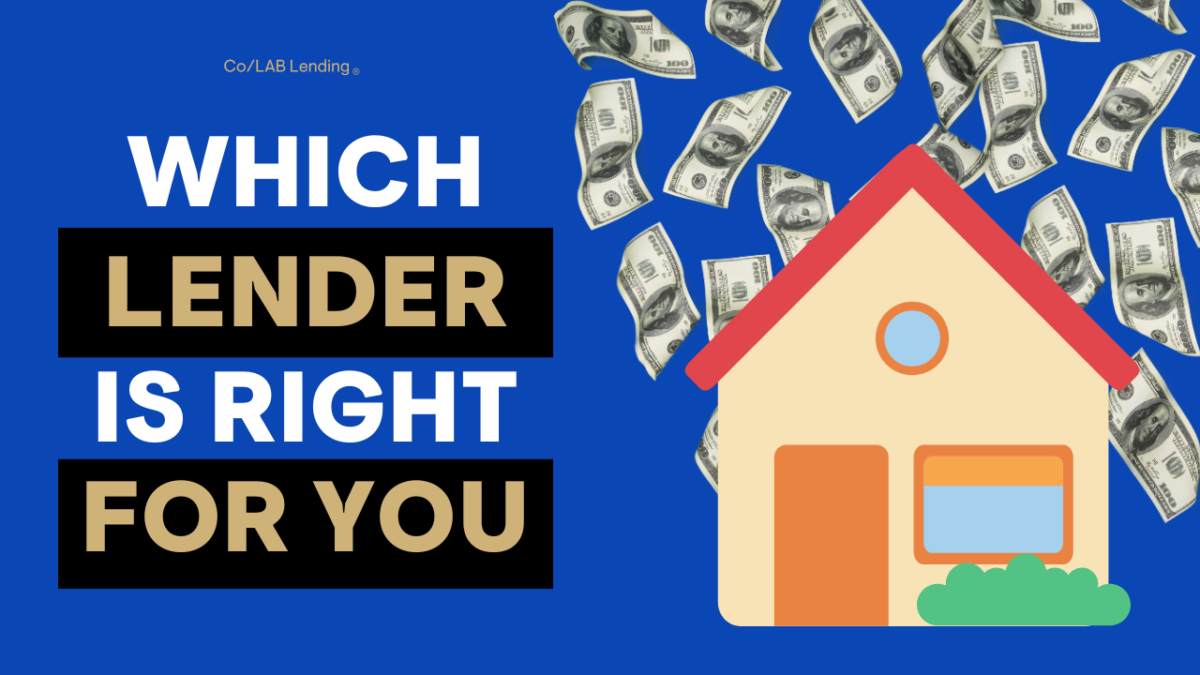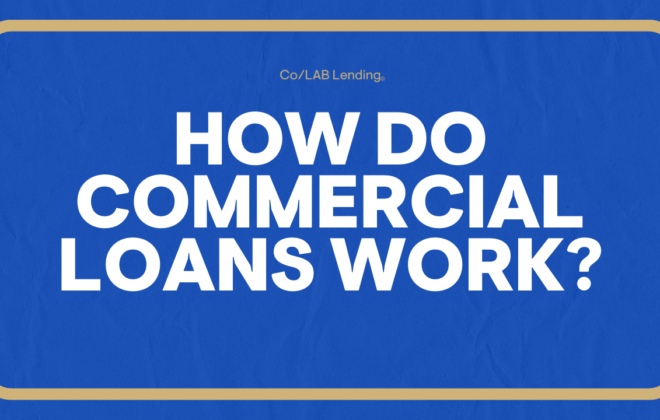Understanding Different Types of Lenders
.
When you’re ready to buy or refinance a home, you’ll have to decide whether to go with a big bank, a local lender, or a direct lender for your mortgage loan. Prior to making a significant financial decision, consider the advantages and disadvantages of each option and weigh them carefully. To help you decide which lender is the best for you, we’ll discuss the types of lenders, break down the differences between them and provide a list of pros and cons to consider.
Understanding Different Types of Lenders
When you need to get a home loan, you should turn to a mortgage lender for help. An experienced mortgage lender can assist you with your home purchase or refinance needs, as well as with money withdrawals and home equity loan applications.
What is a Mortgage Lender: A Detailed Guide
Not all mortgage lenders work directly with consumers, even though there are many different types of lenders. When going for a loan, it’s beneficial to be aware of the distinctions to avoid wasting time going down the wrong path.
Mortgage lenders can be classified into the following eight categories:
Mortgage Bankers
Mortgage bankers account for the vast majority of mortgage lenders in the United States. They may be either a retail or a direct lender, and it can include major banks, internet mortgage lenders such as Quicken, and credit unions, among others.
This kind of lender borrows money at short-term interest rates from warehouse lenders to finance the mortgages they offer to individuals and businesses. After a loan is closed, the mortgage banker sells it on the secondary market to Fannie Mae or Freddie Mac, the government-sponsored enterprises that back the majority of mortgages in the United States, or to other private investors to repay the short-term note.
In order to issue home loans, mortgage bankers may use their own money, or they may assist borrowers in obtaining mortgage funding from a bank. At the same time, unlike a mortgage broker, the banker will handle all aspects of the loan application, including the underwriting and approval process.
Retail Lenders
Banks or mortgage companies that deal directly with consumers come under the category of retail lenders. Retail lenders are most likely what comes to mind when most people think about getting a home loan.
Banks with whom you may already have a savings account are among those to consider. The majority of retail lenders have physical locations and offer limited products. Additionally, they might have overlays or additional mortgage qualification requirements.
Wholesale Lenders
These are the types of lenders that provide funding to small businesses. You may have discovered a way to purchase some of your favorite products at wholesale prices if you enjoy a good bargain.
With a mortgage, however, this is not possible. Unlike retail mortgage lenders, wholesale mortgage lenders do not deal directly with consumers. Instead, they work with other retail mortgage lenders.
When it comes to mortgage origination, retail lenders may or may not lend their own money. A wholesale lender, for example, might be able to provide them with the necessary funds. Some companies have retail and wholesale divisions, while others only have retail divisions.
Direct Lenders
A direct lender is a mortgage company that originates all of the loans it sells to customers directly. There is some overlap between direct lenders and some of the other lender types on this list. For example, a direct lender can be a mortgage banker or a portfolio lender!
As opposed to a retail lender, a direct lender can provide a variety of loan products and specialize in mortgages. It is also far less likely for a direct lender to have a physical location than a retail lender, and many direct lenders only conduct business online.
However, mortgages offered by direct lenders range from 30-year conventional loans to adjustable-rate mortgages and jumbo loans, among other types of financing.
Portfolio Lenders
Lenders who are more flexible in their underwriting for borrowers and do not fit into traditional lending categories are highlighted in these types of lenders. A mortgage lender may choose to sell your loan on the secondary market to Fannie Mae or Freddie Mac after it has been closed.
Instead of selling the debt, a portfolio lender will keep the loan in their portfolio.
Because portfolio lenders do not sell their loans, they have complete control over who qualifies for a mortgage and under what conditions. They can be a good option if you don’t meet some of the more stringent requirements set by traditional lenders or need a more significant loan amount than those institutions offer.
Mortgage Brokers
A mortgage broker is an intermediary between the bank or the lender and the client. The application and approval processes are streamlined by the fact that everything can be completed online, and you can apply through their website or mobile app.
Then upload supporting documentation such as tax returns, bank statements, and proof of income for underwriting approval before receiving a loan offer.
An assigned loan officer will be available to speak with you by phone or email. The ability to close your loan remotely is available in some jurisdictions. A hard money lender, direct lender, retail lender, portfolio lender, or mortgage banker are all terms that can be used to describe a type of lender who operates exclusively online.
Hard Money Lenders
When it comes to real estate investors who need to borrow money for a few months to purchase, fix up, and resell their properties, a hard money lender may be an excellent choice since they are willing to work with you on your terms.
If you’re purchasing a house and want to pay for it over a period of 15 or 30 years, a hard money lender is not the best option for you. Even though they demand high-interest rates and origination costs, they are less fussy about the condition of a property and may complete loans in as little as two weeks.
Apart from the buying price, they will also lend you money for improvements. Some lenders may need evidence of your track record as a successful flipper, while others may charge you extra if you are new to the business. It is possible to be a direct lender as well as a hard money lender.
Credit Unions
They provide borrowers with lesser incomes or first-time homeowners with more lenient loan terms and conditions. Smaller-sized credit unions have earned a reputation for offering more personalized service than large banks.
The loan packages that they provide demonstrate their commitment to the mortgage industry. Not every credit union or large bank will fall into these categories. Still, if you need further assistance in qualifying for a house loan, you may have greater success working with a credit union.
Choosing the Perfect Lender: A Step-by-Step Guide
Use these five steps to discover the best types of lenders for you to get a head start on the mortgage loan application process.
Improve the health of your credit score
Not everyone is eligible to purchase a house; you must satisfy specific credit and income requirements to convince mortgage lenders that you will be able to repay the loan.
With a poor credit score, lenders are less likely to take a risk on lending to you, which results in a higher interest rate on your house loan. If you have a good credit score and make a consistent stream of on-time payments, you will have more leverage in negotiating lower interest rates with prospective lenders.
In general, if your credit score is lower than 580, you will have difficulty qualifying for most kinds of mortgages. On the other hand, you might still find some lenders that go down to a score of 560! However, you might have to make a larger down payment in that case.
Make sure that your credit reports are correct and free of mistakes before attempting to improve your credit score further. Next, make a concerted effort to pay off high-interest loans and reduce your total amount of debt as soon as feasible.
You’ll see an improvement in your debt-to-income ratio if you reduce your debt. Payment of credit cards and recurring loans before purchasing a house can help free up more funds for the down payment.
Be familiar with the lending environment.
Being familiar with the main players will assist you in navigating the congested lending sector. The following are the most prevalent kinds of home loan providers:
Credit unions: These member-owned financial organizations often provide shareholders with attractive interest rates on their investments. Furthermore, several have relaxed their membership requirements, making it more likely that you will be able to locate one to join.
Mortgage Bankers: Mortgage bankers are employed by a particular financial institution and are responsible for putting together loan packages for consideration by the bank’s underwriters.
Correspondent Lenders: Correspondent lenders are particular types of lenders that are typically small, local mortgage lending businesses and have the capacity to create your loan. However, they depend on a pipeline of other lenders, like Chase, to whom they sell your loan immediately after it has been approved.
Savings and Loan Associations (S&Ls): Once the backbone of home financing, S&Ls are becoming more challenging to come by. On the other hand, these smaller financial institutions are typically more community-oriented and thus worth checking out.
Mutual Savings Banks: Similar to savings and loan associations, mutual savings banks are focused on the local community and are frequently competitive.
Mortgage Brokers: A Mortgage Broker is an expert in mortgages only, and they partner with different lenders providing you multiple options to choose from. The biggest advantage is that the mortgage brokers can offer you cheaper costs and lesser overheads.
Check to see whether each lender you’re considering is licensed in the state where you’re doing your research. You may do so via the Nationwide Multistate Licensing System Registry, which is accessible online. You may also look for impartial reviews and information on the Better Business Bureau website.
Obtain preapproval
It will offer you a competitive advantage when bidding against other purchasers if you get a mortgage preapproval letter before you begin looking at homes. This letter demonstrates to the seller that you are a serious buyer with a loan that is likely to complete soon.
It serves as proof that a lender has reviewed your financial situation and determined how much you can afford to borrow and consequently how much home you can afford to purchase.
Obtaining preapproval now will also save you time in the future. When you’re ready to make an offer on a property, lenders will already have the information they need to complete the loan application. You’ll need to provide lenders with your financial details in order to get preapproved.
Examine mortgage rates from a number of different types of lenders
Begin by looking for the greatest mortgage rates available on the internet. Remember that the free quotation you see on the internet is just an estimate. In order to offer an accurate rate, a lender or broker will need to collect your credit information and complete a loan application.
Once you have a number of estimates in hand, compare the prices and choose which one makes the most financial sense for your situation. Make use of your research to your advantage in order to get the greatest mortgage rates available.
However, just because there is more to selecting a reputable lender than just choosing the lowest rate doesn’t mean it isn’t important to choose the lowest rate. The overall amount of interest you pay over the course of the loan is significant, and a low-interest rate may save you hundreds of dollars in the long run.
Make sure you ask the appropriate questions.
Asking for lender recommendations from friends, relatives, and your real estate agent, as well as reading internet reviews, can help you narrow down your options. Once you’ve compiled a list of names, it’s time to ask:
- What kind of communication do you like to use with customers – a phone call or in-person?
- How fast do you reply to emails and other messages?
- How long does it take for you to complete a preapproval, an appraisal, and a closing?
- When it comes to lender costs, how much will I be liable for at closing?
- Will you waive any of these costs, or will you include them as part of my mortgage payment?
- What is the minimum down payment amount required?
Mortgage Consultation Today!
Categories
- Credit (4)
- FHA Loans (3)
- Finances (3)
- First Time Home Buyers (6)
- Grab Bag (7)
- Home Technology (1)
- Homebuying Tips (17)
- Inspiration (1)
- Insurance (3)
- Interest Rates (3)
- Loan Process (1)
- Mortgage Financing (14)
- Motivation (1)
- News (1)
- Press Release (8)
- Renovation (2)
- Self Employed (1)
- Tips & tricks (1)
- Uncategorized (134)
- USDA Loans (1)
- VA Loans (2)




